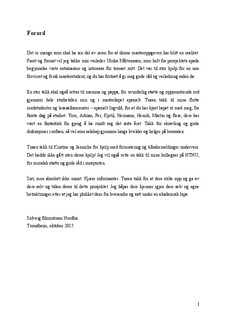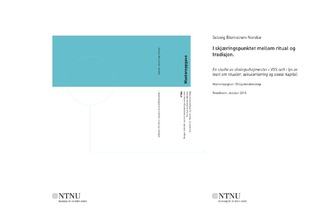| dc.description.abstract | The subject of this thesis is end term services for upper secondary schools. School’s services have been a cause of debate in Norway for a long period of time, but the focus has been exclusively on elementary schools and younger pupils. Research on this subject in upper secondary school was lacking. For this reason, I wanted to examine how older pupils relate themselves to this practice, and what aspects of it they emphasise the most. In order to study this I used ritual theory by Emile Durkheim and Catherine Bell, and social capital theory by Robert Putnam. Important theoretical terms in my thesis are Durkheims terms of the sacred and the profane, Bells principal of ritualization and Putnams terms bridging and bonding social capital. These were all helpful to me in analysing my material.
Given the state of my subject, I came to the conclusion that qualitative method would be most useful. I used a semi-structured interview in collecting my data, interviewing both students, teachers and principals at two schools. In addition to the interviews, I observed the schools end term services. I chose to do a comparative analysis by collecting data and doing fieldwork at one public school and one privately funded Christian school. The reason for this approach was that I wanted to examine whether or not the schools policy about religion played a part in the participants outlook on the school service.
What I found was that basically all participants in the study looked upon the school service as a tradition more than a ritual. They did not express that religious or social aspects were especially important, but they all emphasised tradition as an important aspect. Very few of the participants expressed that they were religious, which only underlined the importance of tradition. This brought the concept of cultural heritage to mind, a broad term that serves as a foundation to the end term service arrangement as a whole. The grey area between “tradition” and “ritual”, as well as the meaning of the term “cultural heritage” are areas that need to be explored further. | nb_NO |

